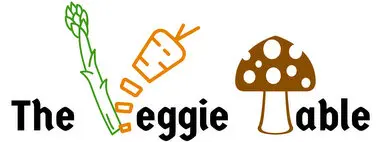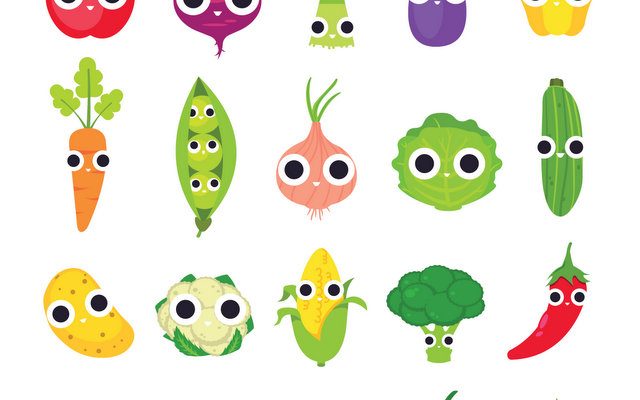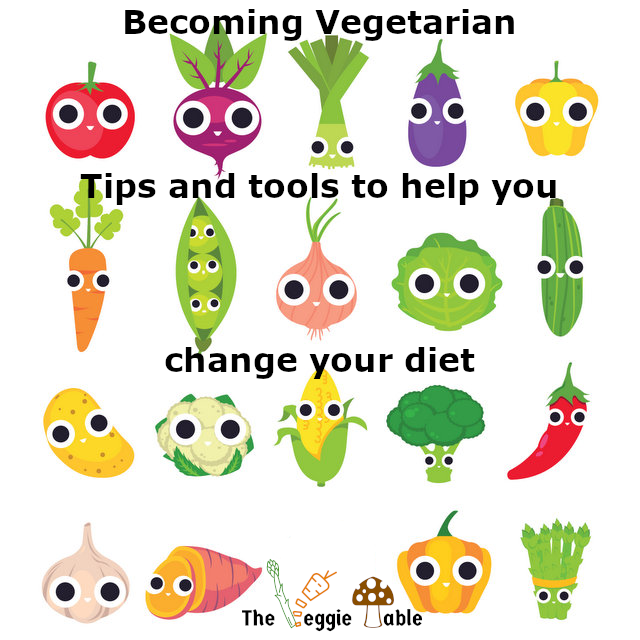If you’re thinking about becoming a vegetarian, the changes you’ll need to make to your diet and your life can seem overwhelming. Don’t worry! Here are some tips to help you make the switch without going crazy.
Giving up meat
Giving up meat is obviously the first step to becoming vegetarian, but there’s nothing that says you have to do it all at once. Quitting cold turkey, while efficient, is a bit extreme and may make the change more difficult for you.
A better way may be to gradually cut out meat – there are several ways to do this:
- Stop eating certain meats
Cut out beef and pork to see how it goes for the first week or two, then stop eating chicken, wait a bit, cut out fish, and you’re a vegetarian. If you plan to become vegan, eliminate eggs and dairy from your diet last.
- Meatless main dishes
Eat less meat by cutting out "total meat" dishes like pork chops, hamburgers, and steak, but allow it in lasagne, pizza, and soup. This will get you used to not seeing big pieces of meat on your plate.
- Eat meat less often
Cut down on your frequency of meat consumption. If you normally eat it every day, cut down to five times a week, then three, then one to see how it goes. By this point, you’ll probably be ready to make the switch, but if not, keep cutting down until you are.
- No meat at home
Stop preparing meat at home, but still eat it when you go out to restaurants or friends’ houses. This can be a nice way to gradually get into the vegetarian mode but not miss out on special occasions until you’re fully committed.
Use one or more of these methods to cut down on your meat consumption and then take it from there, reducing meat further and further until it’s gone from your diet. You will probably find it helpful to learn about substitutions for meat and animal products.
Food choices
Vegetarians often – but don’t always – replace meat with vegetarian meat substitutes made from things like tofu, TVP, tempeh, and seitan (wheat gluten). Mock meat recipes can taste surprisingly similar to their meat counterparts and thus may satisfy any cravings you have for meat. However, soy and gluten allergies are not uncommon, so pay attention to how you feel when adding these to your diet.
Becoming vegetarian doesn’t mean you have to throw out all of your old recipes. You can make many of the same dishes you used to by either leaving out the meat or replacing it with a meat substitute. Spaghetti with marinara sauce, veggie pizza, and cashew curry are just a few of the many dishes that can be just as tasty as the meat versions you eat now: adaptable recipes. These recipes are also handy if you’re cooking for veggies and non-veggies – they can be made with and without meat without much extra effort.
If you’re a vegetarian for ethical and/or environmental reasons, you probably want to make sure that you’re not eating any meat or its by-products. That means you’ll need to read labels and ask waiters about ingredients. A few things to note:
- Gelatin and rennet are meat by-products.
- Kosher is not synonymous with vegetarian.
- Sugar is often refined with bone char.
Also, non-vegetarians sometimes don’t understand that chicken broth and tiny bits of bacon count as meat products. Claiming an allergy to meat products may convince others to be more forthcoming about the vegetarian friendliness of a dish.
For help with any unfamiliar terms and foods, visit my Glossary of Vegetarianism and Vegetarian Cuisine.
Eating right
Although a vegetarian diet can be very healthy, it’s not a given. The nutrients you used to get from animal products need to be replaced. Protein is always a big concern, as are other vitamins and minerals. Be sure to eat lots of different fruits, vegetables, and whole grains to get the nutrition you need. It’s also a good idea to invest in at least one cookbook and a book on nutrition for help with menu planning. Familiarize yourself with the vegetarian food pyramid.
Coming out of the… pantry
When you tell family and friends that you’ve become vegetarian, it’s likely that some will be supportive and others won’t. It’s possible that some will challenge and even mock your decision. Try not to let them get to you, and visit my Dealing with meat eaters and Vegetarianism 101 pages for tips.
Finding support
If your friends aren’t supportive, the switch to vegetarianism can feel like a real burden. It’s important to remember that you’re not alone – find local vegetarian groups (your local health food store is a good place to start) and visit the Veggie Table on Facebook and Veggie Table @ Twitter for support from new friends.
Share / Tweet / Pin Me!



I’ve only eaten meat on a Sunday for ten years ( organic / free range) – I’ve considered vegetarianism for about twenty years – I want to declare myself a vegetarian NOW – it’s so right for me right now – a statement even at 53 years old ! Looking forward to it.
It’s never too late – good luck and bon appétit! 🙂